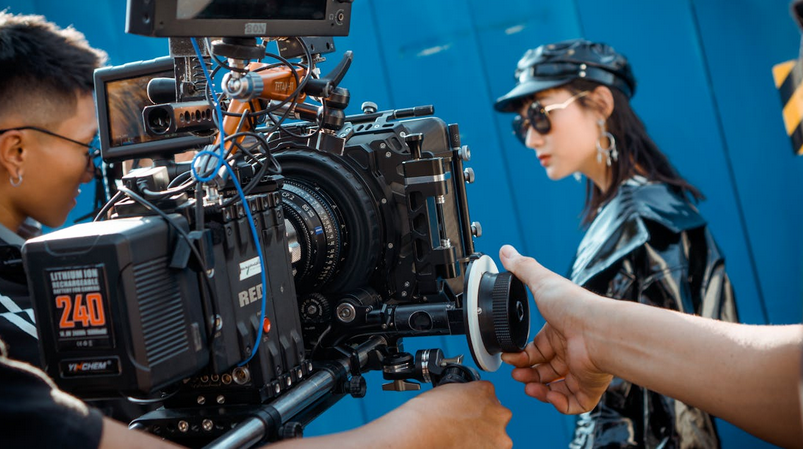As a filmmaker, your imagination knows no bounds—every frame is a canvas waiting to be painted with your unique vision. Yet, lurking behind the bright lights and vibrant scenes are legal complexities that can turn your dream project into a legal nightmare. From copyright concerns to contract disputes, navigating the murky waters of film law can feel daunting. But fear not! In this blog post, we’ll break down common legal roadblocks filmmakers face and equip you with essential strategies to safeguard your creative vision.
Whether you’re an indie darling or an aspiring blockbuster mogul, understanding these vital aspects will help ensure that your story unfolds just as you envisioned—without any unwanted surprises. Ready to roll? Let’s dive in.
Copyright and Intellectual Property Issues
One of filmmaking’s most significant legal challenges is dealing with copyright and intellectual property (IP). A film combines many creative elements, including the script, music, actors’ performances, and visual style. Protecting these creative works through copyright ensures filmmakers and other contributors retain control over their work. For screenwriters, this means ensuring their scripts are appropriately copyrighted before being shared or sold. For filmmakers, it involves securing the rights to any pre-existing material used in the film, like music, books, or trademarks. Without proper IP protection, anyone could copy or distribute parts of the movie without permission, potentially losing revenue and creative control.
Contract Disputes

So, did jodie foster give birth to both her sons before signing her contracts? And what about those who breached their contracts before the filming even started? Are they free from disputes? Contracts are the backbone of any film project, but misunderstandings or poorly negotiated agreements can lead to significant legal issues. Clear, comprehensive contracts are crucial to protect all parties involved, whether it’s an actor’s contract, a director’s deal, or an agreement with a production company. Common contract disputes in the film industry include disagreements over compensation, intellectual property rights, credit allocation, and the distribution of profits. Filmmakers must ensure that all terms are agreed upon in writing to avoid future litigation. Without solid contracts, producers risk facing lawsuits that could delay production or cost them millions of dollars in damages.
Talent Agreements and Union Rules
Actors, directors, and crew members are often represented by unions, such as the Screen Actors Guild (SAG-AFTRA) or the Directors Guild of America (DGA). These unions have strict guidelines and contracts that filmmakers must follow, especially in larger productions. Filmmakers must navigate these agreements carefully to avoid disputes over pay, working conditions, or contract violations. For example, unionized actors are entitled to specific wages, benefits, and work hours, and failing to meet these standards can result in legal penalties or labor strikes that can halt production. Ensuring that everyone involved in the film understands and adheres to union regulations is crucial to the legal process.
Distribution Rights and Licensing
Once the film is complete, filmmakers must secure distribution rights to get it in front of audiences through theaters, television, or streaming platforms. Distribution agreements often involve negotiations over licensing rights, revenue splits, and territories (i.e., where and how the film can be shown). Filmmakers must carefully navigate these agreements to avoid legal conflicts down the line. For example, if a film’s distribution rights aren’t properly licensed, the filmmaker might lose control of where and how the movie is shown. Similarly, licensing agreements with streaming platforms or international distributors must clearly define the terms to prevent disputes over revenue or the film’s availability in certain regions.
Film Ratings and Censorship

Film ratings and censorship are other legal challenges filmmakers must navigate. In many countries, films must be submitted for classification by a rating board (such as the Motion Picture Association in the U.S.) before being released. The rating system helps ensure that films are appropriate for specific audiences, but it can also present challenges for filmmakers who want to retain creative control. Sometimes, films are altered or censored to comply with ratings or legal requirements in different regions. Filmmakers must be aware of the cultural and legal norms of the regions where their films will be shown to avoid unnecessary edits or restrictions.
Defamation and Privacy Issues
Filmmakers face potential legal issues concerning defamation and privacy, particularly in biographical or documentary films. If a movie portrays real people or events, there’s always the risk of legal action for libel, especially if the film presents false or damaging information. Privacy concerns can arise if a movie uses real-life individuals or events without permission or invades someone’s personal privacy. To avoid such issues, filmmakers need to ensure they have the necessary releases and permissions from anyone featured in the film, and they should be mindful of the legal boundaries when telling real-life stories. Consulting with a legal team during the scriptwriting process can help prevent defamation and privacy issues from arising.
The legal challenges in the film industry are numerous and varied, but they’re also essential to ensuring that films are made, distributed, and consumed pretty and legally. From securing copyright and intellectual property rights to navigating talent agreements and distribution deals, filmmakers need to understand the legal landscape at every step of the filmmaking process. By addressing these challenges head-on and consulting with legal professionals, filmmakers can protect their creative work, avoid disputes, and keep their projects moving forward.
…
